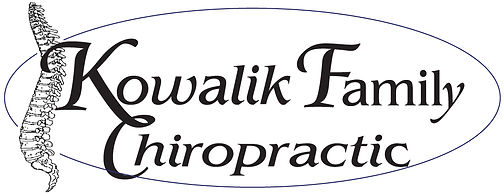Could Extremity Pain and Tingling Be Peripheral Neuropathy?
- support54705
- Sep 26, 2022
- 4 min read
Updated: Mar 7, 2023

Tingling, numbness, pain, and sensitivity in your hands and feet don’t exactly inspire confidence in your health. These obnoxious symptoms get in the way of seemingly small trivial tasks, like opening that jar of pasta sauce. Or when heading out the door for your evening walk. This loss of control can feel unsettling, especially if you’re unsure of why it’s happening to you.
If these symptoms have become a constant in your life, it could be an indication that you’re dealing with peripheral neuropathy– a form of nerve damage. But don’t panic!
While this may sound (and feel!) serious, there are great approaches out there to treat peripheral neuropathy, conservatively and safely. Let’s explore the best options for treatment.
What Is Peripheral Neuropathy?
So, what is peripheral neuropathy and why is it messing with the sensation in your extremities? For starters, your peripheral nerves run from the spinal cord down into your feet and hands. Peripheral nerves have pretty cool jobs, and can be broken into three main categories:
Sensory: responsible for communicating sensory information to the central nervous system; acts as an alert system for your body. When your hand gets a little too close to a hot stovetop burner, your peripheral nerves kick into gear to send you a quick alert to move your hand.
Motor: responsible for the muscles that work together to allow us to move without putting much thought into it.
Autonomic: responsible for keeping involuntary body functions– like digestion, heart rate control, and blood pressure– on track.
Peripheral neuropathy means that these nerves have experienced some nerve damage and aren’t functioning properly. In fact, they tend to go a little haywire. When they’re compromised, they start sending random signals into your extremities, and can even make your hands and feet feel burning or hot sensations. Anyone who has experienced these symptoms knows just how intrusive and unwelcome this can feel, interrupting life on a daily basis and making pain-free living a thing of the past.
The severity of peripheral neuropathy can range from mildly annoying to much more severe. When left untreated, it can progress to a complete loss of feeling in your hands or feet, and even lead to blisters and sores on your extremities. If you believe that you’re experiencing the initial signs of peripheral neuropathy, it is extremely important to seek medical attention immediately to obtain an accurate diagnosis.
Top Risk Factors
Peripheral neuropathy can be caused by a traumatic injury, a severe infection, vitamin B deficiency, the placement of certain tumors, or metabolic conditions.
Additionally, there are certain populations that are more predisposed to peripheral neuropathy. In particular, people who have diabetes, rheumatoid arthritis, chronic illness, or who struggle with alcoholism are at much higher risk for this condition. If you fall in one of these categories, be especially cognizant of your nerve sensations and health.
Treatment Approach For Peripheral Neuropathy
If you believe you may have peripheral neuropathy, seek medical help to get a proper diagnosis. A medical professional will also help oversee your care to ensure your healing process heads in the right direction. One-on-one care is essential to provide your body with the best support possible and to keep your condition from taking a turn for the worse.
Pain Relief
Plain and simple: peripheral neuropathy is uncomfortable. Your doctor will be able to help you understand your pain relief options as you work towards complete healing. Though many common painkillers actually aren’t proven effective against neuropathy pain, some topical creams have been shown to provide relief when applied directly to an affected area. Some patients also experience relief from alternating hot and cold packs on the extremities, or from receiving acupuncture treatments. Work with your doctor to determine the best approach to pain relief for you personally.
Addressing Lifestyle Changes
Aside from basic pain relief, the most effective treatment for peripheral neuropathy involves building an overall healthy lifestyle. Because most cases of peripheral neuropathy stem from another underlying condition (like diabetes), by focusing on improving your overall health as it relates to your underlying condition, you’re effectively treating the root of your problem and working toward full, long-term healing.
For many, this means cleaning up your diet and exercise regime a bit. Remember to eat plenty of dark, leafy greens, fruit, whole grains, lean protein, and perhaps most importantly– try to keep the stuff wrapped in plastic and fried in grease to a minimum. Prioritize exercise by committing to moving your body at least several times a week for 30-60 minutes– this could be as simple as a walk with your family after dinner. And, avoid alcohol and cigarette smoking– these can exacerbate symptoms of peripheral neuropathy and cause extremely uncomfortable, and potentially dangerous, flare-ups.
How Chiropractic Can Help In Your Healing Process
Chiropractic care, a safe and effective natural treatment option, is especially helpful in managing peripheral nerve pain. This is because, at its core, chiropractic treats the spine– the host of your affected nerves. The gentle adjustments that your practitioner performs on your spine help to realign your body and reduce nerve irritability, thus providing relief to your nervous (and entire) system. Chiropractic uses these gentle adjustments to address misalignments– the root cause of many nerve issues.
Plus, consistent chiropractic treatment is a great way to give your body the extra care it needs to feel good, consistently. Your practitioner can play an integral role in offering the support that your system needs to operate well throughout, and following your healing process.
Prioritize your health now. Schedule an appointment online or call (949) 380-8883.
This article is for informational purposes only and is not a substitute for in-person advice or care from a medical professional.

.jpg)



Comments